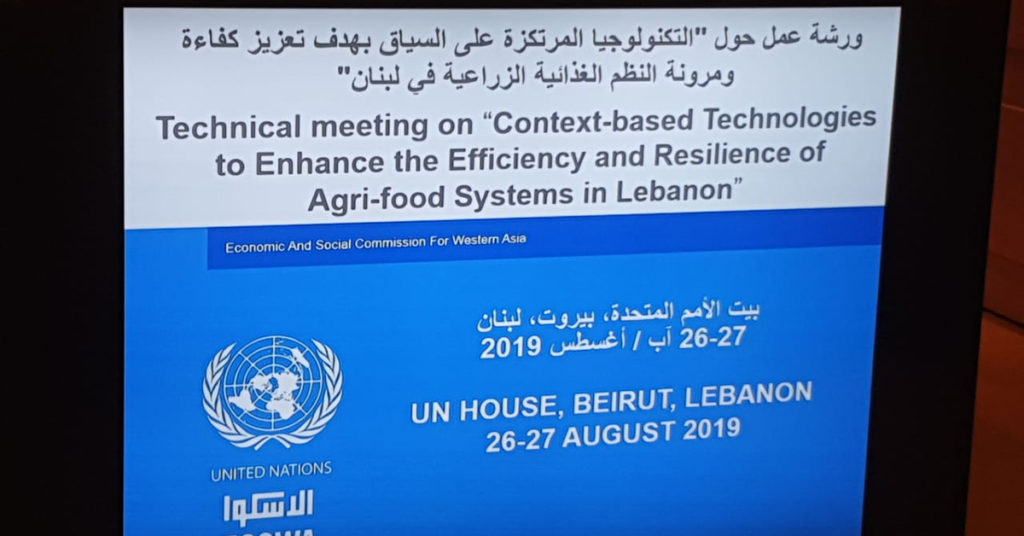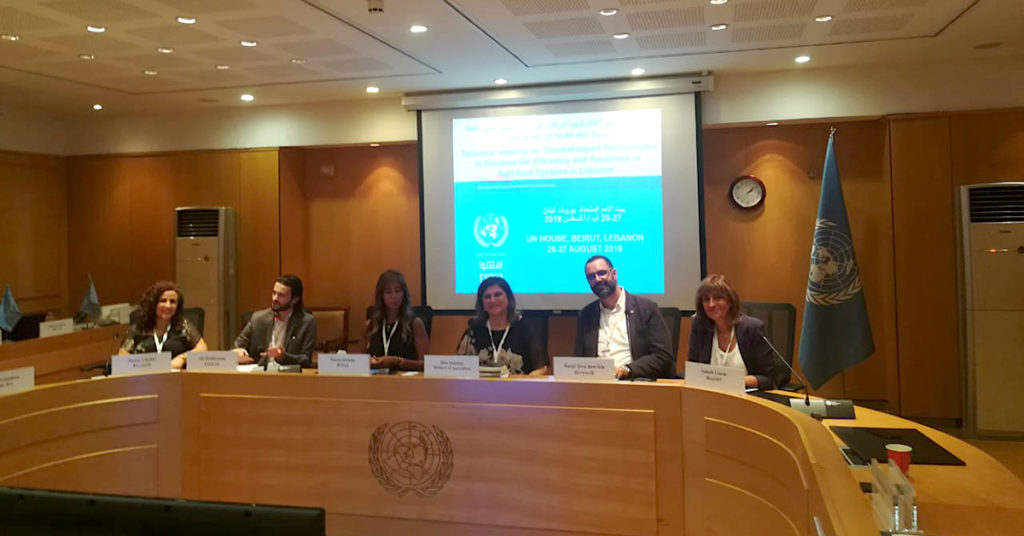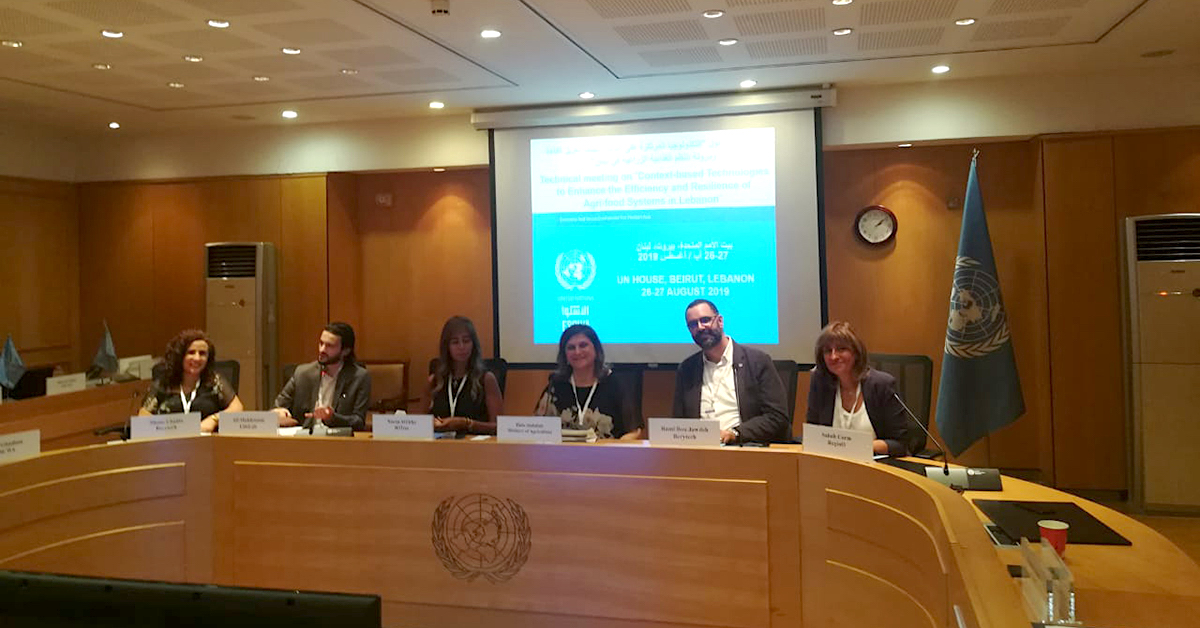
Berytech, under its Agrytech Accelerator Program and within the QOOT Cluster, participated in the “Context-based Technologies to Enhance the Efficiency and Resilience of Agri-food Systems in Lebanon” expert group meeting organized on 26 and 27 August by the Economic and Social Commission for Western Asia (ESCWA) and the Ministry of Agriculture in Lebanon, in partnership with the Food and Agriculture Organizations (FAO) of the United Nations.
The meeting brought together experts from the Ministry of Agriculture, UN organizations (FAO, UNDP), agriculture universities (AUB, LU, USJ), research institutions (CNRS, LARI, etc.), private sector, accelerators (Berytech, etc.), NGOs, farmers’ organizations, farmers, and key experts in the sector of agriculture technology in Lebanon.
Supporting Agri-food innovation
The meeting aimed to understand the status of technology transfer, adaptation and use in agriculture in Lebanon including constraints for scaling-up and opportunities available to reach small farmers. The meeting discussed how different stakeholders can play complementary roles to effectively facilitate technology transfer, adaptation and scale-up in the agriculture sector in Lebanon.
Agrytech Program startup founders, Sabah Corm from Rigino, Nisrine el Turkey from IOTree and Ali Makhzoumi from f Life lab and QOOT cluster manager Jihane Chahla led by Ramy Boujawde, Deputy GM of Berytech had a full panel discussion and presentation on the program’s role in supporting innovation and its efforts to push entrepreneurship, technology transfer and improving the valorization of the agriculture value chain.
“We are thrilled to see the global community and the local government interested in seeing digitization and innovation in the sector as a core component in its development. We highly believe in the youth, our SMEs and their potential in making a difference. What is missing is the legal framework and the policies to help accelerate this process and potentially incentives that the government could do to accelerate these activities in the sector,” commented Boujawdeh.
Deliberations during the two-day meeting hope to produce a set of policy recommendations, key messages, lessons learned, and basic principle to inform the new agriculture strategy for 2020-2025 that the Ministry is currently preparing.

Challenges in the Agriculture Sector
The meeting was held in the presence of the Lebanese AgricultureMinister Hasan Lakkis, the Ambassador of the Netherlands for Lebanon Mr. Jan Waltmans, the Director of the UN Food and Agriculture Organization in Lebanon Mr. Maurice Saade, and the Director of the Statistics Division and Officer in charge of ESCWA Mr. Juraj Riecan, with the participation of over 50 experts and representatives from NGOs, startups and farmers.
Riecan highlighted the importance of the agriculture sector in Lebanon and the main challenges it faces. “It is almost impossible to achieve tangible impacts in agriculture-related SDGs without relying on new technologies. Technology in agriculture offers the potential to improve efficiency and resilience while mitigating the negative effects on the environment,” he said.
Saade stressed the need for innovation to support all stages of the agriculture process including production, marketing and distribution.
For his part, Ambassador Waltmans highlighted successful experiences from the Netherlands in transferring technology in agriculture. He stressed that his country will remain a partner in supporting Lebanon to improve this sector.
As for Lakkis, he stressed the need to support small farmers who can’t always afford proper technology and hoped that the recommendations from the 2-day meeting feed into new agriculture policies.
Through its Agrytech Accelerator Program, Berytech aims to source the top startups with disruptive innovations in the Agri-Food sector and provide them with the adequate technical and business resources as well as community support to scale their ideas into successful businesses with global impact. Applications for Batch III are now open here.








